The 7 Best Alternatives for X/ Twitter in 2025
The social media landscape is in constant flux, but few platforms have generated as much buzz and controversy in recent years as x.com, formerly Twitter. What was once considered a digital town square for global conversations and the rapid exchange of information has, for many users, become a source of frustration. The moderation policies seem increasingly arbitrary, the promised "free speech absolutism" has revealed itself to be selective censorship, and a palpable political agenda appears to have taken hold. Anyone searching for a platform where open debate is possible, free from the constant worry of censorship and one-sided influence, is now forced to look for alternatives.
Fortunately, a growing number of networks are promising just that: a return to the original ideals of social media. Whether decentralized, focused on niche communities, or built on a clear commitment to free expression, here are the eight best alternatives to X.com to consider in 2025.
1. Mastodon
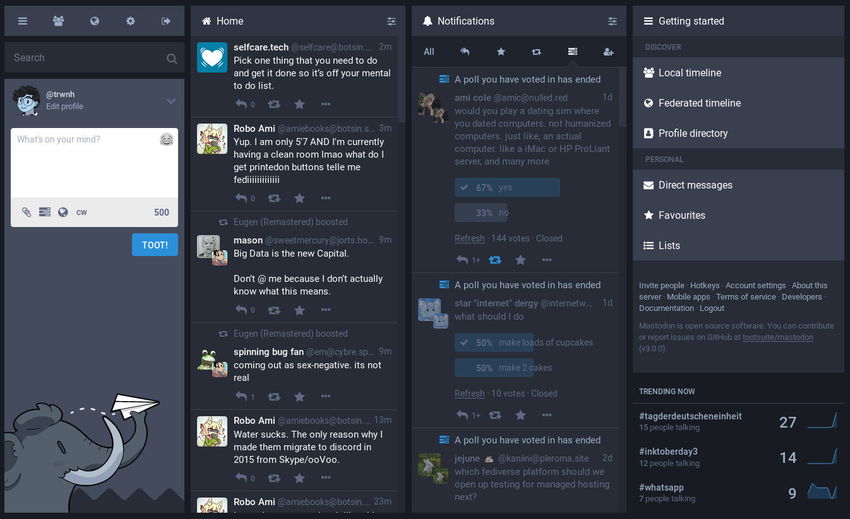
Mastodon isn’t a single website, but a vast network (the "Fediverse") of thousands of independent servers, known as "instances." Each instance has its own rules and its own community, yet users can communicate with each other no matter which server they are on.
- No single entity controls the entire network. Power rests with the administrators of each instance.
- No algorithms dictating what you see. Your feed is purely chronological.
- Most instances allow significantly more than X's 280 characters.
- Non-commercial and is supported by donations and volunteers.
2. Bluesky
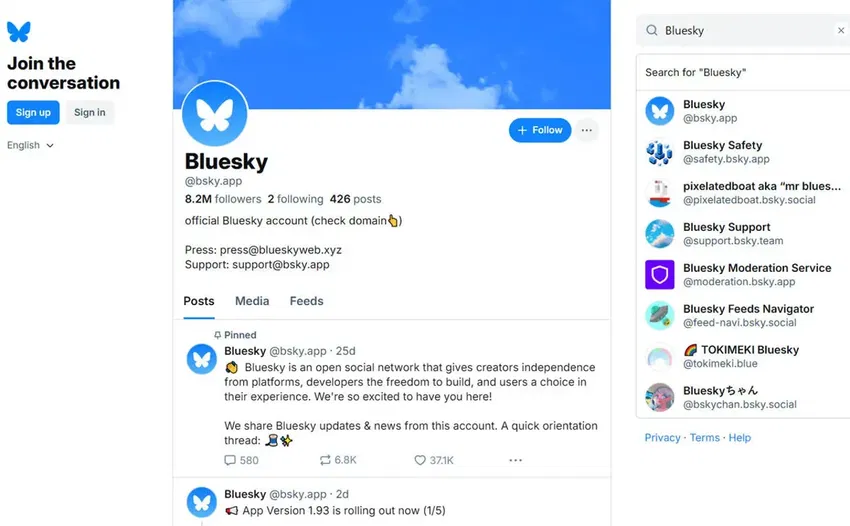
Originally initiated by Twitter co-founder Jack Dorsey, Bluesky has evolved into a promising, decentralized alternative. The platform feels familiar to former Twitter users but operates on revolutionary technology under the hood—the "AT Protocol"—which is designed to provide greater transparency and user control.
- Similar to Mastodon, the AT Protocol allows users to control their data and even migrate their account to another provider without losing their followers.
- Users can create and subscribe to their own algorithms to curate their timeline according to their preferences.
- The user experience is highly intuitive and strongly reminiscent of Twitter in its prime.
3. Threads
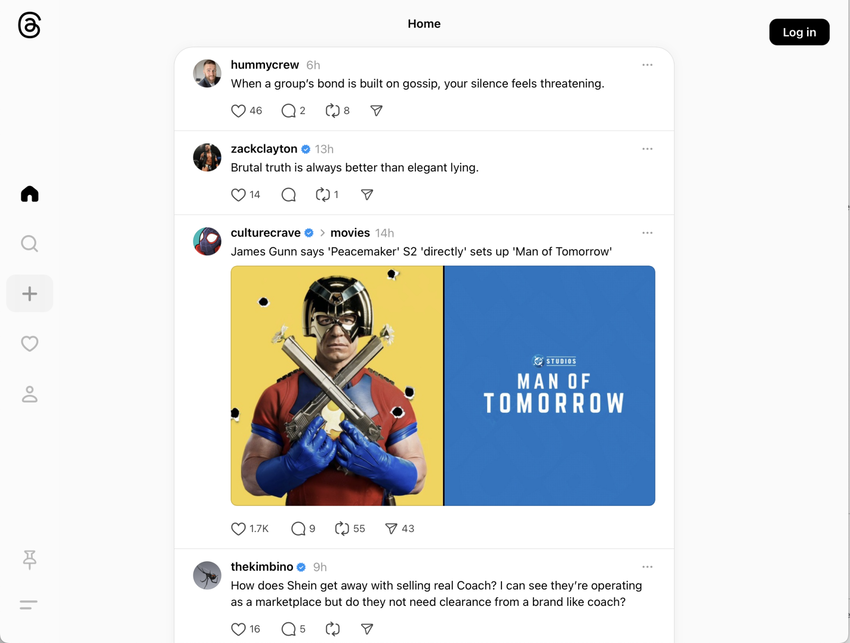
Launched by Meta (the parent company of Facebook and Instagram), Threads rapidly acquired millions of users by leveraging Instagram's existing network. It aims to be a public conversation app that integrates seamlessly into the Meta ecosystem while offering a distinct, text-focused experience.
- Effortless sign-up and follower import for existing Instagram users.
- A familiar microblogging interface for quick updates and public discussions.
- Meta has announced plans to make Threads compatible with the ActivityPub protocol, which would allow interaction with Mastodon and other federated platforms.
4. Gab
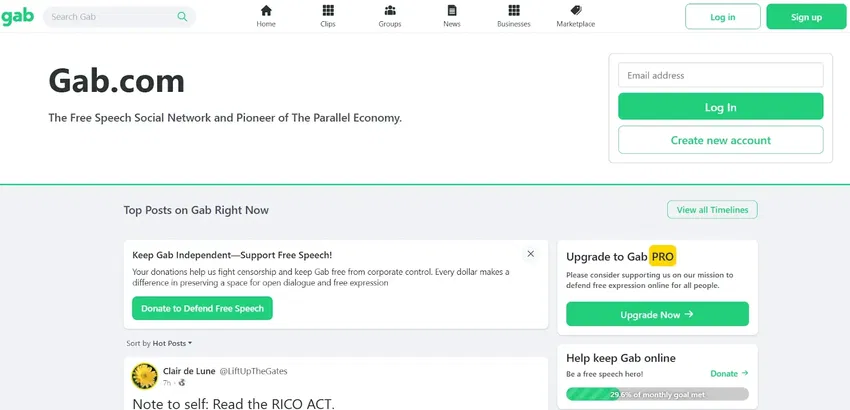
Gab positions itself as a champion of "free speech absolutism," attracting users who feel censored or de-platformed by mainstream sites. It is known for its minimal moderation policies, which has fostered a user base dedicated to unrestricted expression.
- A very broad interpretation of free speech, with few content restrictions beyond what is legally required.
- The look and feel are similar to classic Twitter, making it easy to use.
- A large portion of the platform is dedicated to political and social commentary.
5. GETTR
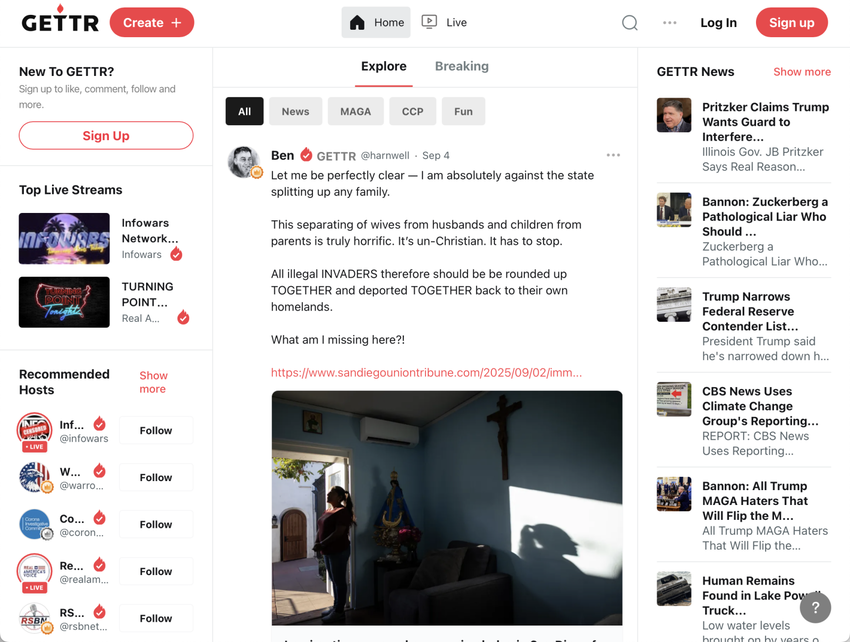
Founded on the principle of fighting "cancel culture," GETTR is another alternative that prioritizes freedom of expression. It has attracted a significant number of conservative voices and media personalities who have left mainstream platforms.
- Allows for posts up to 777 characters, as well as high-quality video uploads and livestreaming capabilities.
- A dedicated feature for longer-form articles and statements.
- Aims to be a source for news and opinions without the editorial filter of Big Tech.
6. Nostr
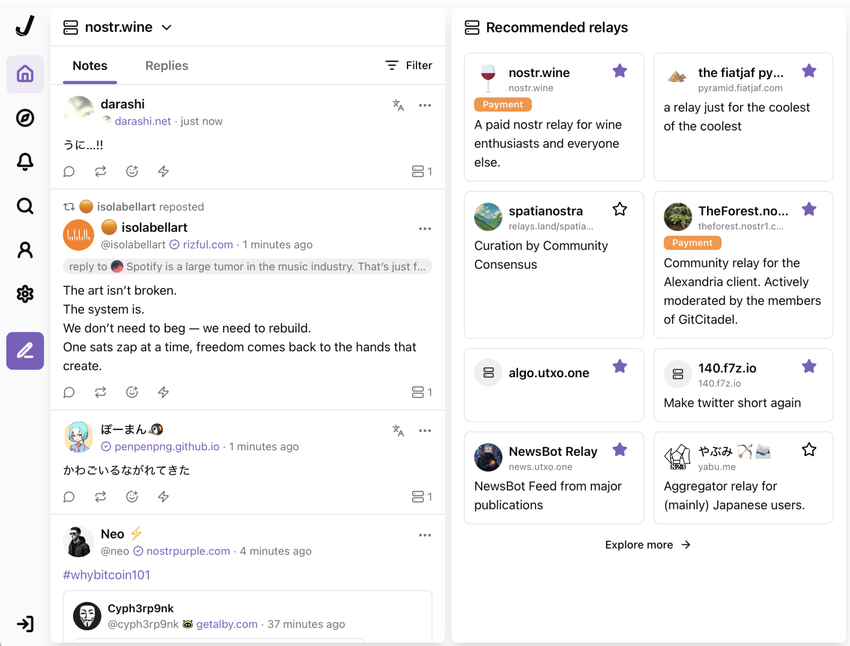
Nostr (Notes and Other Stuff Transmitted by Relays) is different from the others on this list. It's not a single app or website, but a decentralized protocol, much like email. Users can choose from many different client apps (like Damus or Amethyst) to access the same global network of notes and posts.
- Because it's a protocol, there is no central server to shut down or company to pressure. Your identity is a cryptographic key that you own.
- You decide which relays (servers) you connect to, giving you full control over your data and who you interact with.
- A vibrant community of developers is constantly building new apps and features on the Nostr protocol.
7. Tumblr
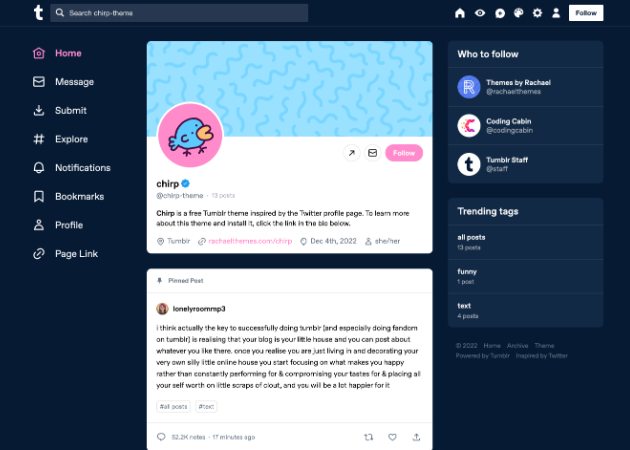
The platform, which had its golden era a decade ago and lost many users due to controversial content decisions, is anything but dead. In fact, it has evolved into a resilient oasis for visual and creative expression, cultivating a loyal and active user base away from the mainstream. for many, it's the perfect antidote to the text-based and often toxic debate culture of other networks.
- At its core, Tumblr is a blogging platform. Users create and curate content in the form of images, GIFs, text, videos, and "photosets." Aesthetics and visual expression are clearly the main focus.
- The heart of Tumblr is the "reblog." Instead of just sharing, users add their own comments and tags, creating conversational threads that can evolve over years and become a cultural artifact in their own right.
- There is arguably no better platform for deep dives into niche interests. Whether it's art, TV series, gaming, literature, or specific humor—subcultures find a home on Tumblr and can thrive without the noise of general timelines.
- Unlike the uniform profiles of X or Instagram, Tumblr allows for extensive customization of one's own blog through countless themes. Every blog can be a unique visual experience.
